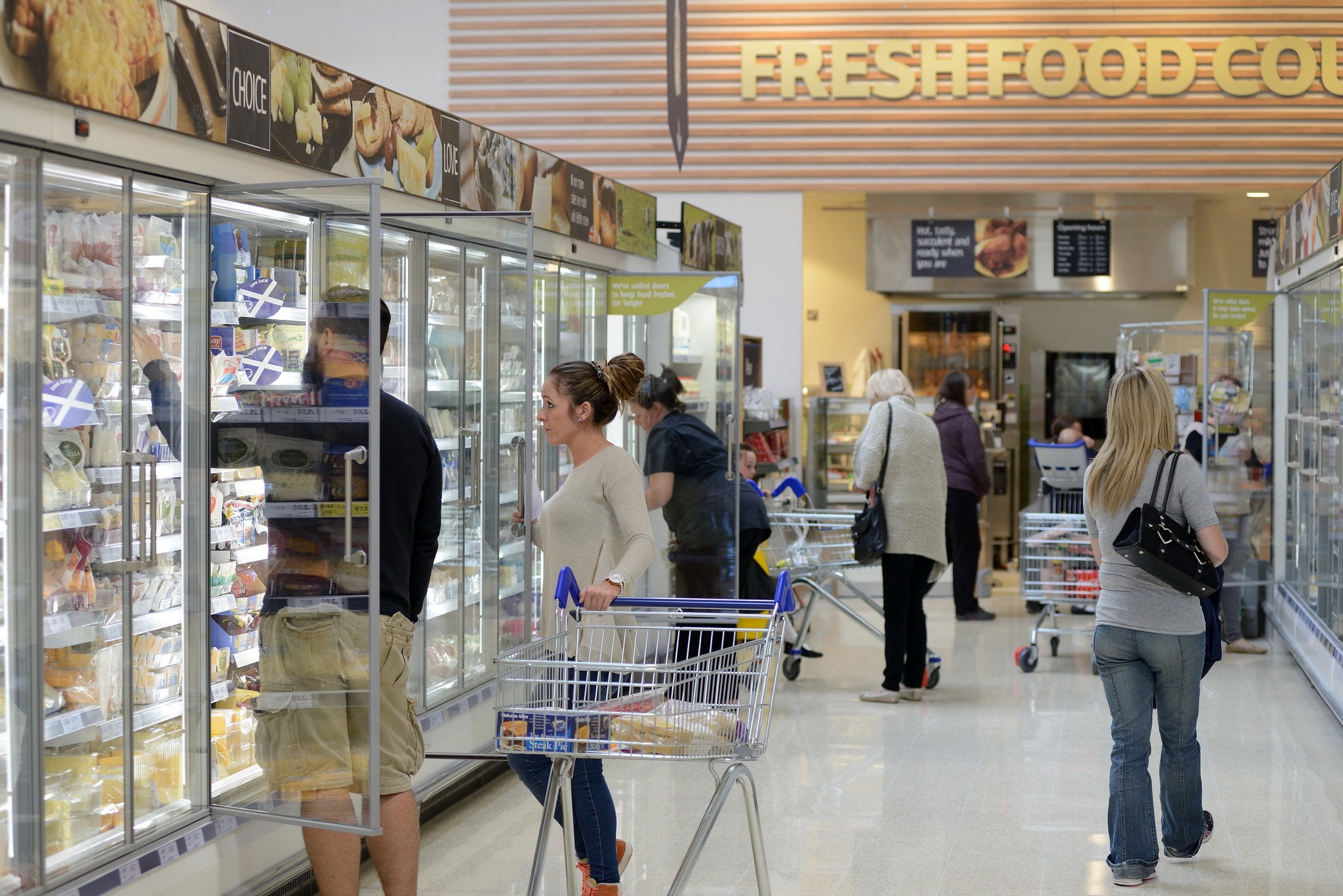UK inflation in surprise pause as food prices ease back
The Office for National Statistics said Consumer Prices Index inflation stayed at 6.7% in September.

UK inflation held steady last month as rising food and drink prices eased back.
It nevertheless halts three consecutive months of waning pressure on household budgets.
The Office for National Statistics (ONS) said Consumer Prices Index (CPI) inflation stayed at 6.7%, the same rate as seen in August, despite expectations that inflation would fall again.
Analysts had predicted inflation would dip to 6.6% for the month.
Official figures showed that food and non-alcoholic drink prices dipped on a monthly basis in September for the first time in two years in an encouraging signal to under-pressure households.
Nevertheless, prices are still up sharply against the same period last year after rising supply chain costs and a spike in commodity prices following the Russian invasion of Ukraine.
Overall inflation steadied as the benefit of easing food inflation was offset by higher petrol and diesel prices for motorists.
The September reading is typically used to calculate the increase in benefits payments for the next year, as well as outlining rises in some taxes, such as business rates. The Government has not yet confirmed this will be the case for 2024.
It also comes after separate figures from the ONS on Tuesday showed that wages outpaced inflation for the first time in nearly two years.
ONS chief economist Grant Fitzner said: “After last month’s fall, annual inflation was unchanged in September.
“Food and non-alcoholic drinks prices eased again across a range of items, with the cost of household appliances and air fares also falling this month.
“These were offset by rising prices for motor fuels and the cost of hotel stays.”
The costs of food and non-alcoholic drinks are still significantly higher than a year ago but are now falling month on month, statisticians at the ONS said.
The price of supermarket staples in September was still 12.1% higher than in the same month a year ago. However, the inflation rate declined compared with the 13.6% figure recorded in August.
The ONS said the products which saw inflationary pressure ease back most included milk, cheese and eggs.
Furniture and household goods also had a downward effect on the inflation rate after price rises eased, particularly for larger household appliances.
Elsewhere, these reductions were offset by motor fuel costs.
The ONS said prices were still almost 10% lower than this time last year, but jumped 3.6% against levels from August, as supply restrictions in the Middle East caused oil prices to increase.
Inflation remains significantly above the Bank of England’s 2% target rate, while there is also still pressure on the Government to meet its pledge of halving inflation in 2023. It will need the rate to fall to below 5.4% by the end of the year.
However, shortly after the inflation figures were published, Treasury minister Andrew Griffith insisted the Government is “on track” to meet this commitment.
Chancellor Jeremy Hunt said: “As we have seen across other G7 countries, inflation rarely falls in a straight line, but if we stick to our plan then we still expect it to keep falling this year.
“Today’s news just shows this is even more important so we can ease the pressure on families and businesses.”
Samuel Tombs, chief UK economist at Pantheon Macroeconomics, said September’s robust inflation reading “will not be sustained over the coming months”, predicting the Government will match its pledge.
He said: “We continue to think that consumer prices will rise slowly enough over the coming months to drag down the headline rate of CPI inflation to an average rate of 4.5% in Q4.”
He is also among economists predicting the Bank of England will hold interest rates at 5.25% again at the monetary policy committee’s meeting next month.
Martin Beck, chief economic advisor to the EY Item Club, shares this view.
He said: “Assuming a further rise in oil prices is avoided, the EY Item Club thinks falling inflation should give policymakers the confidence to start cutting rates from late next spring.”
The latest figures also showed the CPI measure of inflation including housing costs (CPIH) was 6.3% last month, remaining at the same rate as seen in August.
The Retail Prices Index meanwhile slowed to 8.9% from 9.1% in the previous month.
Bookmark popover
Removed from bookmarks